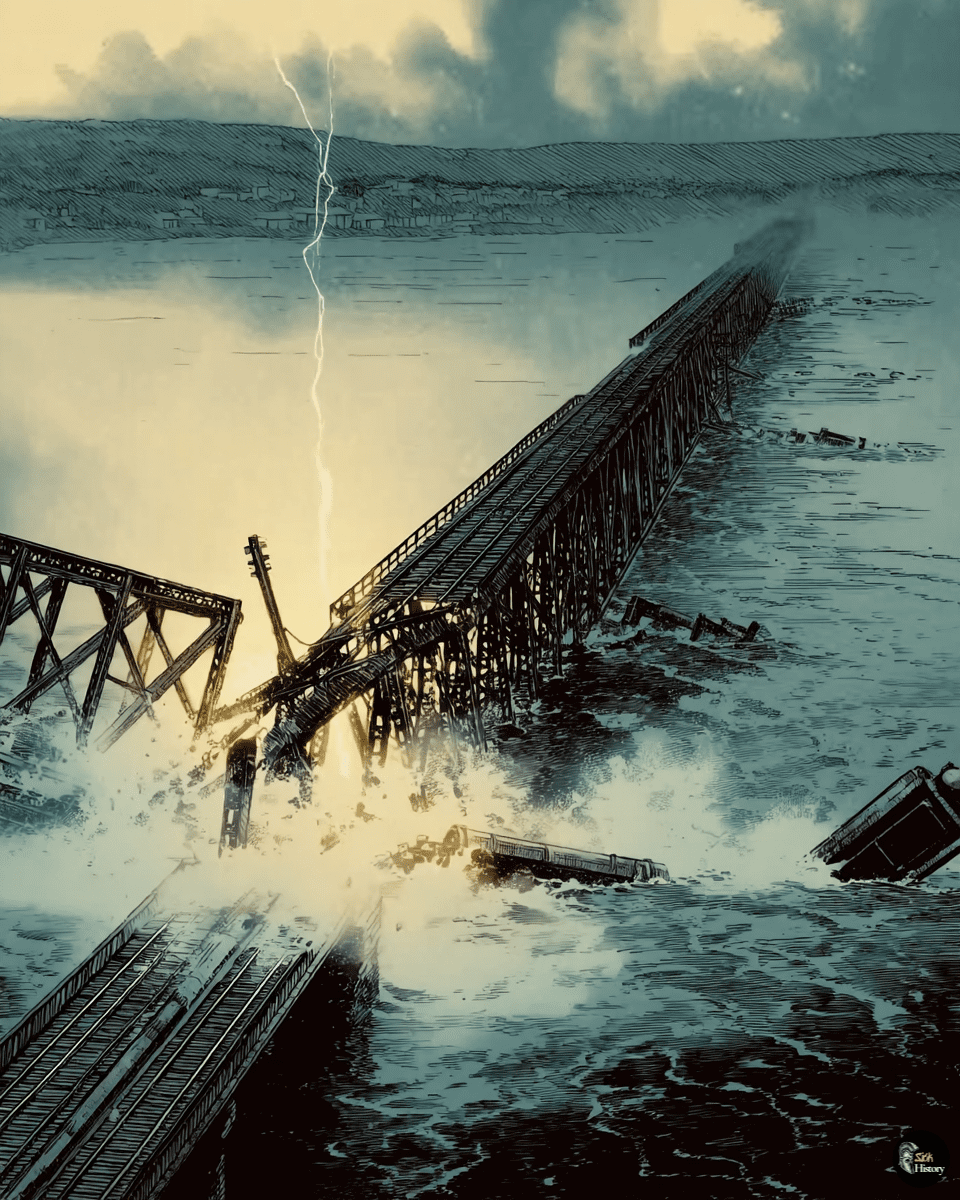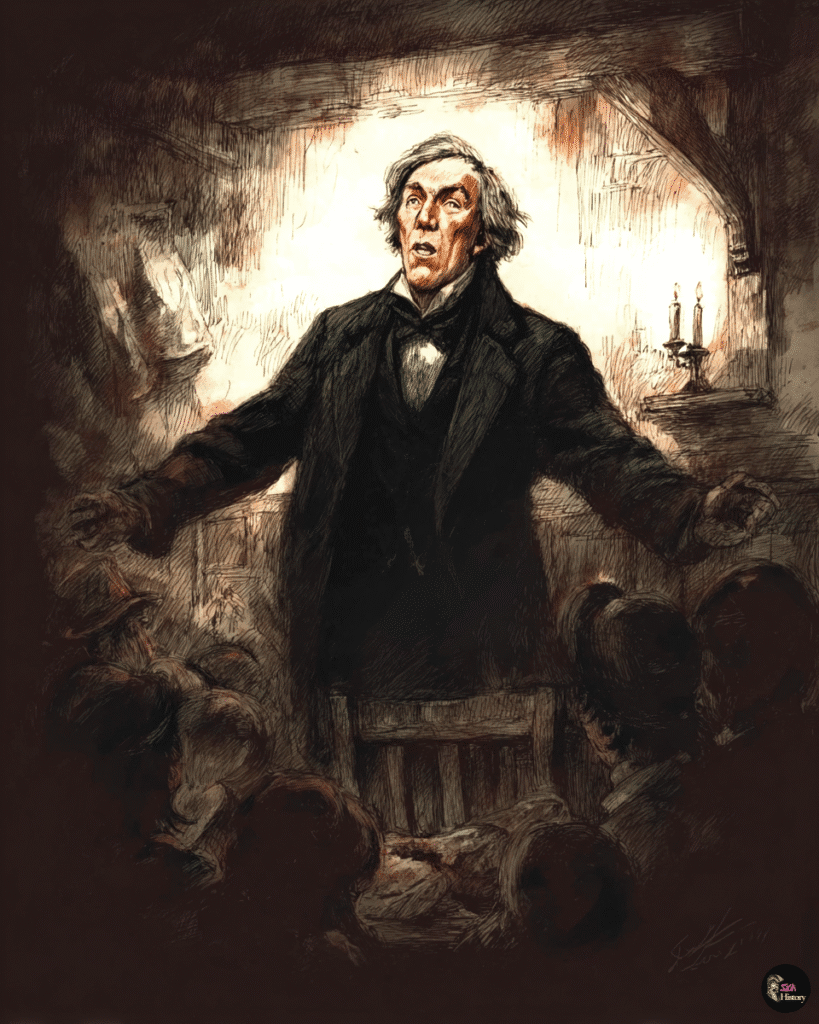William McGonagall, often regarded as the worst poet in the history of the English language, left an indelible mark on Victorian literature.
His most infamous work, “The Tay Bridge Disaster,” perfectly encapsulates his unique brand of unintentional comic verse.
McGonagall’s earnest yet spectacularly inept poetry continues to amuse and fascinate readers over a century after his death.
Born in Edinburgh around 1825, McGonagall proudly adopted the title “Poet and Tragedian” despite widespread mockery of his work.
His performances in Dundee and beyond became legendary, with audiences throwing rotten fish and vegetables at him as he recited his poems with unwavering self-confidence.
This peculiar mix of delusion and determination made McGonagall a fascinating figure in Scottish literary history.
McGonagall’s poetry, characterized by forced rhymes, irregular meter, and a penchant for stating the obvious, has become a prime example of accidental comedy in literature.
His work on the Tay Bridge disaster stands out as a particularly cringe-worthy yet strangely compelling piece, capturing the tragic event with unintended hilarity.
Despite the ridicule he faced during his lifetime, McGonagall’s legacy as the “worst poet” has ironically secured him a place in the annals of Victorian literature.
William McGonagall: Life and Character
William McGonagall, a Scottish poet born in 1825, led a life as peculiar and memorable as his infamous verses.
His unwavering self-confidence and unique approach to poetry made him a notorious figure in Victorian literary circles.
The Enigmatic Dundee Poet
McGonagall spent much of his life in Dundee, working as a handloom weaver. His poetic career began at the age of 52 when he claimed to have received a divine calling.
Despite lacking formal education, McGonagall pursued his newfound passion with fervor.
The poet wrote about 200 poems, covering topics ranging from local events to national tragedies. His most famous work, “The Tay Bridge Disaster,” commemorated a catastrophic bridge collapse in 1879.
McGonagall’s performances were as memorable as his poetry. He often recited his verses in public, sometimes facing mockery and ridicule from audiences. Yet, he remained undeterred, continuing to perform and publish his work.
Stirrings of Ambition: Self-Perception and Confidence
McGonagall’s self-confidence was legendary. He referred to himself as “Poet and Tragedian,” firmly believing in his artistic talents despite widespread criticism.
This unwavering self-belief led him to approach Queen Victoria for the position of Poet Laureate.
His ambition extended beyond poetry. McGonagall attempted to become an actor, famously refusing to die in a production of Macbeth, insisting his character would triumph.
This blend of determination and delusion became a hallmark of his character.
Despite financial struggles and public mockery, McGonagall never lost faith in his abilities. He continued writing and performing until his death in 1902, leaving behind a legacy as one of the most memorable figures in Scottish literary history.
Artistry and Legacy
William McGonagall’s unique brand of poetry left an indelible mark on Scottish literary history. His unintentional humor and unwavering self-confidence created a legacy that continues to fascinate and amuse readers to this day.
A Talent for Tragedy: The Tay Bridge Disaster

McGonagall’s most famous work, “The Tay Bridge Disaster,” exemplifies his peculiar poetic style.
Written in 1880, the poem recounts the tragic collapse of the Tay Rail Bridge in Dundee on December 28, 1879.
McGonagall’s earnest attempt to capture the gravity of the event resulted in unintentionally comical verse.
His opening lines, “Beautiful Railway Bridge of the Silv’ry Tay! Alas! I am very sorry to say,” set the tone for a poem that would become infamous for its poor rhythm and awkward phrasing.
Despite its technical shortcomings, the poem’s sincerity and McGonagall’s genuine distress over the disaster shine through.
This work cemented McGonagall’s reputation as the worst poet in English literature. It remains a prime example of his unique ability to transform tragedy into unintentional comedy.
Scottish Literary History Seen through McGonagall’s Eyes
McGonagall’s contribution to Scottish literary history is undeniable, albeit unconventional.
His works provide a unique lens through which to view Victorian-era Scotland and its literary landscape.
Born in 1825, McGonagall lived during a time of rapid industrialization and social change.
His poems often touched on contemporary events and social issues, offering a peculiar commentary on his times.
McGonagall’s unwavering belief in his poetic genius, despite widespread mockery, speaks to the complex relationship between art, self-perception, and public reception in Victorian society.
McGonagall’s legacy extends beyond his poems. His public performances and self-promotion efforts paint a vivid picture of street entertainment and literary culture in 19th-century Scotland. His resilience in the face of ridicule has made him an unlikely folk hero.
Poesy and Laughter: The Fusion of Delusions and Comic Verse
McGonagall’s work represents an unintentional fusion of tragedy and comedy. His genuine belief in his poetic talents, combined with his technical ineptitude, created a unique form of accidental comic verse.
McGonagall’s poems are characterized by forced rhymes, irregular rhythms, and a tendency to state the obvious in grandiose terms.
His self-bestowed title of “Poet and Tragedian” reflects the disconnect between his aspirations and his actual abilities. This discrepancy is at the heart of McGonagall’s enduring appeal.
Readers find themselves simultaneously amused by his poor writing and moved by his sincerity.
McGonagall’s legacy lives on in the form of poetry competitions and public readings. His works continue to bring laughter and a strange sort of admiration, reminding us of the thin line between tragedy and comedy in art.

